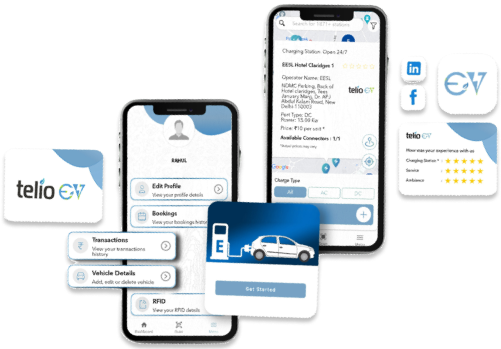Enhancing Electric Vehicle Charging with Advanced Management Software

The quick adoption of electric vehicles (EVs) has necessitated the development of efficient and user-friendly charging solutions. Central to this development are Electric Vehicle Charging Management Software (EV CMS) and EV Charging Apps, which enhance the charging process for both operators and users.
Understanding EV Charging Management Software
EV Charging Management Software functions as a detailed platform that allows Charge Point Operators (CPOs) and other stakeholders to monitor, manage, and optimize EV charging stations. Key functionalities include real-time monitoring of charging stations, user authentication, payment processing, and energy management. By integrating these features, the software ensures effective operation and boosts the user experience.
Key Features of EV Charging Management Software
1. Real-Time Monitoring and Control: Operators can supervise the status of charging stations, track energy usage, and address issues promptly.
2. User Authentication and Access Control: The software manages user access, making sure that just authorized individuals can use the charging facilities.
3. Payment Processing: It facilitates smooth deals, supporting various payment methods to deal with varied user preferences.
4. Energy Management: By optimizing energy distribution, the software lowers functional costs and supports grid stability.
5. Reporting and Analytics: Comprehensive data analysis help in notified decision-making and strategic preparation for network growth.
The Role of EV Charging Apps
EV Charging Apps are designed to provide EV owners with hassle-free access to charging infrastructure. These applications offer functions such as locating nearby charging stations, real-time schedule updates, navigation support, Electric Vehicle Charging App and remote monitoring of charging sessions. By boosting ease of access and user engagement, these apps play a crucial function in promoting the adoption of electric vehicles.
Integration with Open Charge Point Interface (OCPI)
The Open Charge Point Interface (OCPI) is a standardized protocol that assists in interoperability between various EV charging networks. Integration with OCPI permits seamless roaming, enabling users to gain access to multiple charging networks with a single account. This interoperability boosts user convenience and broadens the accessibility of charging facilities.
Benefits of Implementing Advanced Charging Solutions
- Enhanced User Experience: User-friendly user interfaces and trustworthy services increase customer fulfillment and loyalty.
- Operational Efficiency: Automation and real-time tracking reduce manual intervention, reducing operational costs.
- Scalability: Advanced software solutions support the growth of charging networks to meet growing need.
- Revenue Generation: Flexible pricing models and effective payment processing open new revenue streams for operators.
Conclusion
The integration of EV Charging Management Software and user-centric EV Charging Apps is essential in advancing the electric vehicle community. These innovations not only enhance operations for service providers but also substantially enhance the charging experience for users. As the EV market continues to grow, the adoption of such sophisticated solutions will contribute in meeting the increasing need for effective and accessible charging infrastructure.
Comments on “The Blog to Learn More About Electric Vehicle Charging App and its Importance”